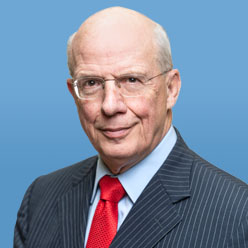From October 31 to November 7, the American Foreign Policy Council (AFPC) sponsored an 11-member delegation to the People’s Republic of China (PRC). The delegation held the majority of its meetings in Beijing, but also visited the country’s northern Shanxi Province.
The delegation was headed by former U.S. National Security Advisor Robert C. McFarlane and included former Undersecretary of State Amb. Richard McCormack; AFPC President Mr. Herman Pirchner, Jr.; former U.S. Foreign Service officer Kent Lucken; and China specialist Ying Ma, among others.
In Beijing, delegation members met with Party and government officials in the country’s Ministry of Commerce, its Taiwan Affairs Office, the International Department of the CPC, and were received in the Diaoyutai State Guesthouse by former State Councilor Dai Bingo (China’s former top foreign policy official).
The delegates also met with the Party Secretary (top Provincial official, roughly equivalent to a U.S. Governor) while in Shanxi Province. In their meetings, delegates heard about the current, “fragile phase” of the Chinese economy. Such vulnerability is attributed to the country’s transition from an export driven economy to a service driven one and their slowing GDP growth. Nevertheless, Chinese officials said, China will continue to account for an increasingly larger share of global trade.
Meanwhile, “negative externalities” (such as pollution) caused by Chinese manufacturing are an increasing concern, and the government has pledged to improve environmental polices.
Indeed, during its visit to a combined cycle coal plant in Shanxi Province, the delegation saw efficient energy generation processes that represented a significant improvement over those prevalent in China in previous years.
During discussions with Chinese officials, delegates raised the issue of China’s contentious foreign policy and the growing turbulence in the U.S.-China bilateral relationship. Among the subjects covered were China’s controversial “land reclamation” activities in the South China Sea, Beijing’s views on Iran and the Middle East, the ongoing challenge posed by North Korea, and how the then-upcoming leadership change in Taiwan would affect the trilateral U.S.-China-Taiwan dynamic.
